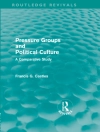Since the Enlightenment, liberal democrat governments in Europe and North America have been compelled to secure the legitimacy of their authority by constructing rational states whose rationality is based on modern forms of law. The first serious challenge to liberal democratic practices of legal legitimacy comes in Marx’s early writings on Rousseau and Hegel. Marx discovers the limits of formal legal equality that does not address substantive relations of inequality in the workplace and in many other spheres of social life.
Beyond Hegemony investigates the authoritarianism and breakdown of those state socialist governments in Russia and elsewhere which claim to put Marx’s ideas on democracy and equality into practice. The book explains that although many aspects of Marx’s critique are still valid today, his ideas need to be supplemented by the contributions to social theory made by Nietzsche, Foucault, the critical theory of the Frankfurt School as well as the libertarian socialism of G.D.H. Cole. What emerges is a new theory of political legitimacy which indicates how it is possible to move beyond liberal democracy whilst avoiding the authoritarian turn of state socialism.
Schecter points out the weaknesses of the many extra-legal accounts of non-formal legitimacy now on offer, such as those based on friendship and identity. He then argues that the first step beyond hegemony depends on the discovery of forms of legitimate legality and demonstrates why the conditions of legitimate law can be identified.
Over de auteur
Darrow Schecter is Professor in Critical Theory and Modern European History at the University of Sussex












